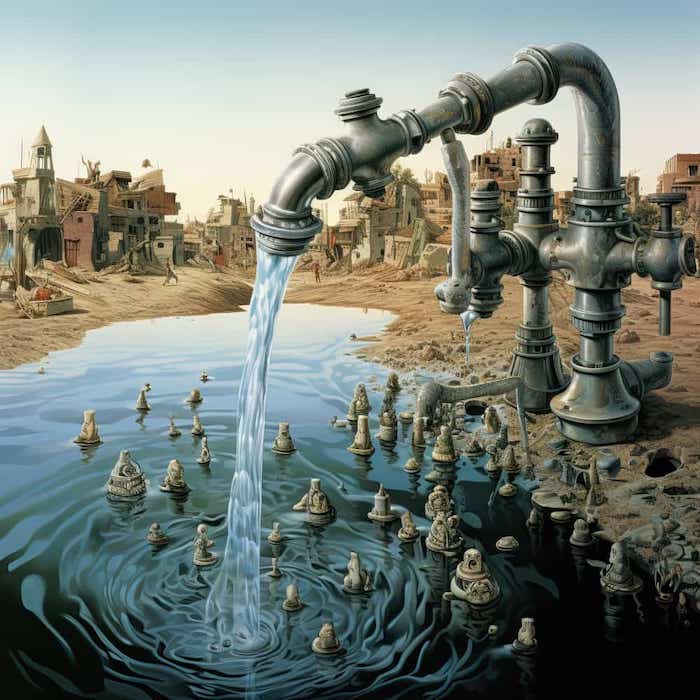In many households, the water system is an overlooked but essential part of daily living. From showers and cooking to cleaning and heating, a well-functioning water system is crucial. However, there are times when it seems like your water system just can’t keep up with demand, causing inconvenience and concern. Understanding why your water system may be struggling is key to finding solutions that will ensure it runs efficiently and effectively.
Recognising the Signs of a Struggling Water System
First and foremost, recognising the signs that your water system is underperforming is crucial. Common indicators include fluctuations in water temperature, reduced water pressure, unusual noises from the pipes or boiler, and unexpectedly high water bills. Each of these symptoms can suggest different underlying issues, from simple fixes to more complex problems requiring professional attention.
Capacity Challenges
One of the primary reasons a water system might struggle is due to insufficient capacity to meet the demands of the household. For instance, if you’ve recently installed a high-demand appliance like a powerful shower or a large bathtub, your existing system, such as a Rheem hot water system, might not have the capacity to handle the increased demand efficiently. This is particularly true in older systems that were not designed to support modern water usage patterns.
Ageing Infrastructure
As with any aspect of a home, water systems age and wear out. Over time, components degrade, and efficiency can diminish. An ageing water heater, for instance, may struggle to heat water as effectively as it once did, leading to longer waits for hot water and increased energy consumption. Pipes, too, can suffer from corrosion, sediment build-up, or scale, which narrows the pipes and reduces water flow.
High Demand Periods
Water systems can also struggle during periods of high demand. In many households, morning routines and evening chores can lead to a surge in water use, putting pressure on the system to maintain consistent pressure and temperature. Planning water usage around these peak times or upgrading to a system with a larger capacity can help alleviate these pressure spikes.
Sediment Build-Up and Maintenance Issues
Sediment build-up in tanks and boilers is a common issue, particularly in areas with hard water. This build-up can insulate the water from the heat sources, reducing efficiency and capacity. Regular maintenance, including flushing the water heater and inspecting the anode rod, can help mitigate these issues and extend the life of your system.
Inefficient Systems and Poor Performance
Sometimes, the struggle to keep up is due to the inefficiency of the system itself. Older systems, or those that have not been regularly maintained, might use more energy to heat and pump water than newer, more efficient models. Upgrading to a more efficient system, particularly those with ENERGY STAR ratings, can improve performance and reduce running costs.
Environmental Factors and External Damage
External factors such as extreme weather conditions can also affect your water system’s performance. For instance, during cold snaps, pipes may freeze and reduce flow, or even burst. Protecting pipes against extreme temperatures and checking for external damage regularly can help prevent such issues.
Water Pressure Problems
Low water pressure can make a water system seem inadequate. This could be due to issues within your home, such as a clogged filter or aerator, or it could be related to municipal water supply problems. Installing a water pressure booster or consulting with local water authorities can provide solutions if your water pressure is consistently low.
Upgrading Your Water System
If your water system is outdated or continually struggling to meet demand, upgrading to a newer model can be a worthwhile investment. Modern water systems are more efficient, reliable, and can be tailored to the specific needs of your household. When selecting a new system, consider factors such as the size of your home, the number of occupants, and your typical water usage patterns.
Regular Maintenance: The Key to Efficiency
Regular maintenance is essential for keeping your water system running efficiently. This includes routine checks and servicing by a professional, regular cleaning of filters and aerators, and timely repairs of any leaks or damages. Establishing a maintenance schedule can help prolong the life of your system and ensure it performs well even under high demand.
By understanding the common reasons why your water system may be struggling, you can take proactive steps to address these issues. Whether it’s through upgrading to a more suitable system, performing regular maintenance, or simply adjusting your water usage habits, you can enhance the efficiency of your water system and ensure it meets the needs of your household. Remember, a well-maintained water system not only provides comfort and convenience but also saves money in the long run by operating more efficiently and preventing costly breakdowns.







